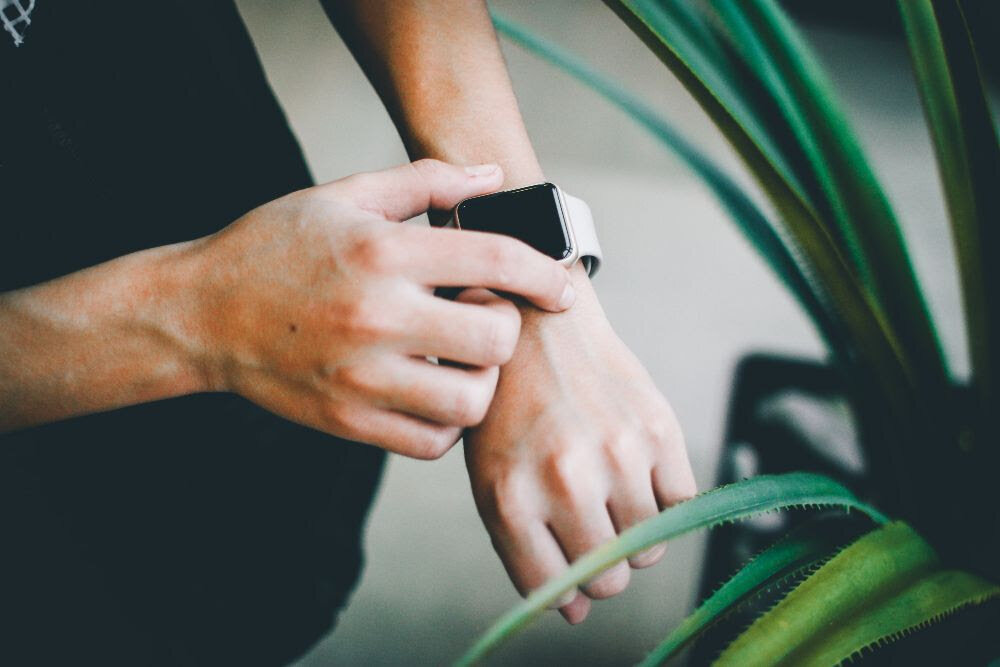
INSIGHTS
ACTIONABLE SCIENCE FROM Dr. WELLS’ NEWSLETTER
Alpha Brainwaves, Metacognition & Strategic Thinking
Over the past couple of weeks we’ve discussed the importance of entering into Beta brainwaves in order to enter into a state of deep focus and sustained concentration. Learning how to unlock beta brainwaves and enter into focused execution allows us to accomplish more, decrease stress, and direct our attention towards what is important.
Beta Brainwaves & Deliberately Recharging
Last week we introduced beta brainwaves, the brainwaves that occur when we are in a state of deep focus and sustained concentration. Learning how to unlock beta brainwaves and enter into focused execution allows us to accomplish more, decrease stress, and direct our attention towards what is important. However, the periods in between these deep focus states are just as important.
Frequently Asked Questions
One of the most common pieces of feedback we get is that people love Q&A sessions. So this week we thought we’d compile all of the FAQs that we’ve received from our community over the past year - through emails, live events, and coaching sessions. Hopefully you find this information helpful and that there are some key takeaways that you can apply to your daily routine. Of course if you have any questions that we missed don't hesitate to reach out!
Sleep and the Brain: Memory, Creativity and Problem Solving
I’m sure you’ve noticed on days you don't get a good sleep, you struggle to concentrate, are unable to recall facts, and find it difficult to solve problems. It’s also well established that students’ academic performance is correlated with sleep quantity and quality. But what exactly is happening at night that helps us think clearly the next day?
Wash your brain while you sleep
This week we’re going to focus on another incredibly important function of sleep: removing waste. For all metabolic processes that occur in your body, there is an associated waste. The lymphatic system works with the circulatory system to clear this waste. Lymphatic vessels collect waste from your cells and dump it into the blood to be disposed of to keep your body clean and healthy. But how does the brain dispose of the waste that it accumulates during the day?
Decision Fatigue: How to recognize the cues and break the cycle
One of the questions we asked in our recent survey was what your main barriers are when making a change to improve your health. “Lack of motivation” was the top answer...by a landslide. This is a HUGE increase from our survey at the beginning of the pandemic, and while not surprising, we wanted to dedicate a week to addressing this.
Do blue light filters actually work?
In previous newsletters, we’ve discussed the dangers of exposing your eyes to light before bed. Due to our circadian rhythm (our internal biological clock), we naturally feel sleepy at night as the pineal gland releases melatonin, the sleepy hormone. When we expose our eyes to light, a signal is sent from our retina to our brain telling it to stop producing melatonin. Basically, we’re telling our body that it’s daytime instead of nighttime. This can cause an increase in sleep latency (the time it takes to fall asleep), sleep inertia (drowsiness when you wake up), and an overall reduction in sleep quality. This is why it's incredibly important to dim lights at night and keep your bedroom as dark as possible.
What we've learned so far: A recap of 2021
We’ve given you a lot of new information this year and it can sometimes be a lot to digest. We know many of you don’t get around to reading the emails every week so every few months, we like to do a recap of what we’ve learned to help solidify ideas and let you catch up if you've fallen a bit behind!
Sleep to Move and Move to Sleep!
If you’ve been with us for a while or participated in any of our programs, you’ll know that one of our main principles is how connected the body is. Sleeping well leads to better eating habits. Proper nutrition allows you to exercise more efficiently. Better physical health leads to better mental health. All of these lifestyle factors are interconnected and by improving one aspect of your health, you can improve the others and amplify your performance. This is what we call the ripple effect.
What's the deal with Heart Rate Variability?
You might have heard the term ‘Heart Rate Variability’ thrown around in the past couple of years. With the recent advances in wearable technology, many fitness trackers and health apps have added this functionality to their list of features, such as VIIVIO, Oura Ring, and Whoop.
The Link Between What you Eat & How you Sleep
As you know, sleep is one of the key pillars for physical and mental health. Sleep affects every system in your body. Sleep is important for focus, immune function, and mood. Sleep is when we repair tissues, remove waste, and restore energy levels. When we get enough sleep we just feel awesome!
Are naps good for you?
One of the questions we get a lot is ‘Are naps good for you?’ The short answer? Yes. Provided you do it right. Have you ever woken up from a nap and felt worse than you did before your nap? This is called nap inertia. The reason this happens isn’t because naps are bad per se. This is because you’re napping for the inappropriate amount of time. It all comes back to sleep cycles, which we discussed a few months ago. But just in case you missed it, here is a recap.
What's the deal with intermittent fasting?
Intermittent fasting is a buzzword that I’m sure you’ve heard in the past few years - either through social media, through friends and family, or from unsolicited advice from someone at a party. Maybe you’ve already tried it or have considered trying it but you have no idea where to start. There are a lot of diets and fads out there that it can be very confusing and hard to decipher what is actually good for you. We wanted to clear up any confusion you might have about intermittent fasting and how you can do it in a healthy way.
Leverage the Power of Nature
Have you noticed how much less stressed you are after going for a walk outside or after spending a weekend camping in the wilderness? This is because nature is so powerful in improving both physical and mental health.
Sleep Hygiene
Sleep is important for restoring energy levels, repairing tissues, regulating appetite, and improving mental clarity. Everything falls apart if you’re not sleeping properly. With many people back at work or school, at least for the time being, sleep is often put on the back burner as you’re getting used to a new schedule. However sleep should be prioritized now more than ever! Why? Because sleep is also so important for immune function.















